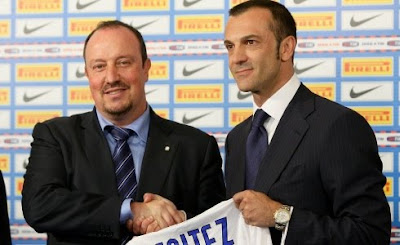
Following on from their last two matches, both goalless draws, it has struck me that Roberto Mancini is going about building a trophy-winning team at Manchester City in completely the wrong way. By playing three defensive midfielders, in the form of Nigel de Jong, Gareth Barry and Yaya Toure, the Italian manager is leaving far too much for his front three to do and it is simply not happening. There was a period during the disappointing Manchester derby last week where de Jong, Barry and Toure indulged in about two minutes of square passing, resulting in absolutely nothing. Have you ever seen a team win trophies with three defensive midfielders? I don’t think so.
Chelsea claimed their Premier League titles of 2005 and 2006 with Claude Makelele doing the defensive job and other players like Frank Lampard, Tiago and Michael Essien attacking around him. Last season Jon Obi Mikel did the job while the evergreen Lampard, Michael Ballack and Essien, when fit, did the attacking. At Manchester United, Darren Fletcher is seen as the defensive midfielder, and has been crucial in their recent successes, but he shares his duties with Paul Scholes or Michael Carrick, both of whom can get forward or sit and cover when Fletcher attacks. With this in mind, it is hard to fathom why Mancini feels playing three midfielders with little attacking ambition will lead to success.
With the money at his disposal, and an already well rounded squad, Mancini should be building a brand of winning football which involves attack as much as defence. Surely a better formation, certainly for the easier home games would be a 4-4-2. Emmanuel Adebayor, Mario Balotelli or Roque Santa Cruz could share Carlos Tevez’s workload up front, while both Adam Johnson and David Silva could start on the wings with James Milner moved into central midfield with just one of the defensive trio alongside him. For away games against tougher opposition, they could certainly revert to the 4-3-3 which has been a proven recipe for success in recent years, but should keep Milner as a central midfielder because there is no situation in modern football where a team would need three defensive midfielders!
Furthermore, City seem to have problems in choosing who to sign. Perhaps it is inevitable with the temptation of the big bucks, but an awful amount of egos and troublemaking players have arrived at Eastlands. Robinho and Craig Bellamy have already been through the door and back out and Emmanuel Adebayor is currently kicking up a fuss being sat on the bench. But the reason he is sat on the bench is because of Mancini’s insistence on playing one centre forward. Captain Carlos Tevez is clearly the in-form player of the past year or so but even he seems to be unhappy at City. Given the captain’s armband this summer to show how much the club value him, Tevez hasn’t stopped talking to the media about how he doesn’t enjoy his football and is contemplating retirement, despite only being 26 and arguably at his peak. There have been reports he is suffering from depression, which he has denied, but he has certainly had several heated disputes with Mancini and his influence on the dressing room is questionable.
As for the third choice striker, Mario Balotelli has talent in abundance but again seems to be an accident waiting to happen. The Italian was at the centre of many controversies when at Inter Milan, not least being caught on camera wearing an AC Milan shirt. Imagine if a City player was caught wearing a Manchester United shirt? The upset that would be caused at the club doesn’t bear thinking about. As Sir Alex Ferguson said today in his press conference, ‘You can buy success, but only if the structure and the spirit is right’. At Manchester City, until they play a more suitable formation and remove several egos from the dressing room, their wait for trophies will go on for a while yet.








